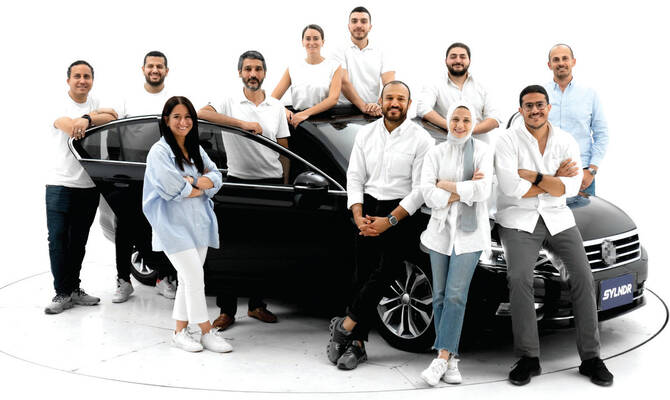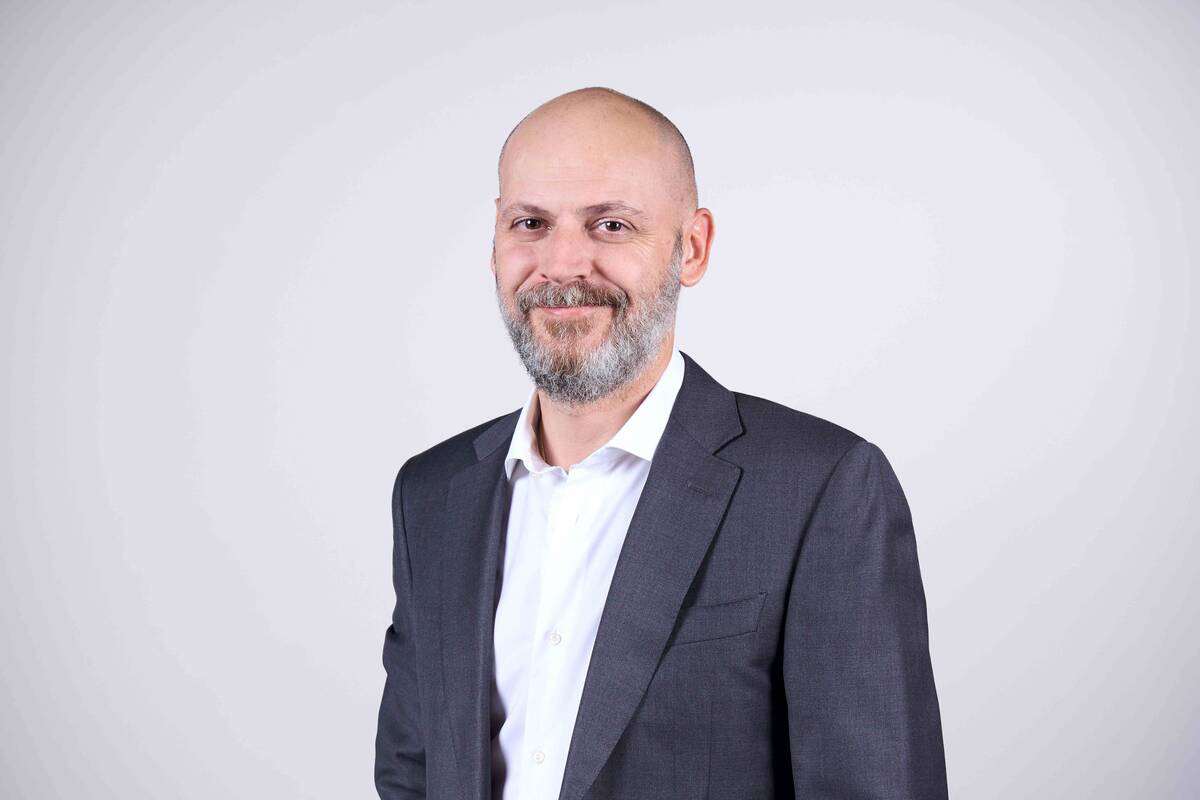RIYADH: A series of significant funding rounds and strategic investments have bolstered the Middle East and North Africa tech and startup landscape recently, with a focus on expanding regional ecosystems and scaling innovative solutions.
Among the notable developments, Aramco’s Wa’ed Ventures co-led a $19 million series B extension investment in US-based Graphiant, alongside stc Group’s Tali Ventures.
This investment is part of a broader $102 million series B round that also includes Sequoia Capital, Two Bear Capital, and IAG Capital Partners.
Founded in 2020 by Khalid Raza, Graphiant provides a Network-as-a-Service platform designed to deliver secure and high-performance enterprise connectivity across hybrid and multi-cloud environments.
As part of the funding agreement, Graphiant will establish its regional headquarters in Riyadh to support Saudi Arabia’s ambition to become a global technology hub.
Anas Al-Gahtani, acting CEO of Wa’ed Ventures, said: “By enabling enterprises to deploy secure, high-performance connectivity across multi-cloud and hybrid environments, Graphiant is solving foundational challenges for digital transformation.”
VUZ secures $12m pre-series C to expand immersive media platform globally
Saudi Arabia-based immersive media platform VUZ has raised $12 million in a pre-series C funding round, with the International Finance Corporation — part of the World Bank Group — joining as a strategic investor.
The round also included participation from Al Jazira Capital, Crosswork VC Success Fund, existing investors, and several Saudi family offices, bringing VUZ’s total funding to over $35 million.
Founded in the UAE in 2017 by Khaled Zaatarah, VUZ offers immersive live content across extended reality, virtual reality, augmented reality, and AI-powered streaming.

Founded in 2020 by Ahmad Hammouda and Seif Amr, Thndr enables users to invest in stocks, bonds, and funds through mobile platforms. (Supplied)
The new capital will support VUZ’s global expansion across Saudi Arabia, the UAE, Africa, Asia, and the US, while enhancing its AI-driven streaming technologies and live spatial experiences. The company previously closed a $20 million series B round in October 2022.
Saudi spacetech SARsatX raises $2.6m seed funding to scale satellite development
Saudi Arabian spacetech startup SARsatX has raised $2.6 million in a seed round led by TONOMUS, with participation from Wa’ed Ventures, Access Bridge Ventures, and KAUST Innovation Ventures.
Founded in 2019 by Ahmed Al-Zubairi and Muhannad Al-Mutiry as a spin-off from King Abdullah University of Science and Technology’s TAQADAM Accelerator, SARsatX designs and builds small satellites equipped with synthetic aperture radar technology.
The satellites provide Earth observation data used in applications such as deforestation monitoring, oil leakage detection, disaster management, and border security.
The company intends to use the funds to accelerate technology development and scale satellite deployment.
Saudi e-commerce app Ziadah closes seed round
Ziadah, a Saudi Arabia-based e-commerce platform, has closed a seed funding round from an undisclosed angel investor.
Founded in 2024 by Ali Al-Dahnin and Mahmoud Omar, Ziadah offers online stores behavior-driven marketing tools aimed at increasing sales.
The company plans to use the investment to enhance customer engagement features and expand its services to more merchants across the region.
Egypt’s Thndr raises $15.7m to expand digital investment platform across MENA
Thndr, a Cairo-based digital investment platform, announced a $15.7 million funding round led by Prosus, with participation from Y Combinator, BECO Capital, Endeavor Catalyst, and others.
Founded in 2020 by Ahmad Hammouda and Seif Amr, Thndr enables users to invest in stocks, bonds, and funds through a mobile platform with low commissions.

We’re building a product, network, and monetization model that’s hyper-local, with the infrastr- ucture to scale globally.
Khaled Zaatarah, VUZ founder and CEO
The new funds will support regional expansion focusing on the UAE and Saudi Arabia.
Hammouda said: “We believe the time is now to build the region’s leading investment-first money app.”
Sylndr secures $15.7m series A to accelerate Egypt used-car platform growth
Cairo-based Sylndr, a used-car platform, has raised $15.7 million in a series A round led by DPI Venture Capital through the Nclude Fund. Other investors include Algebra Ventures, Nuwa Capital, and Raed Ventures. Sylndr facilitates vehicle buying, selling, and financing.
Founded in 2021 by Omar El-Defrawy, the company will use the funds to expand across Egypt, improve pricing intelligence, inventory, fintech capabilities, and strengthen partnerships with dealers and lenders.
El-Defrawy said: “This round allows us to scale nationally and expand our product offering.”
UAE’s Tarjama secures $15m series A to scale Arabic AI ecosystem
Tarjama, a UAE-based language technology company, has closed a $15 million series A funding round led by Global Ventures, with participation from Wamda Capital, TA Ventures, and Phaze Capital,as well as Golden Gate Ventures and Endeavor Catalyst.
Founded in 2009 by Nour Al-Hassan, Tarjama serves over 700 clients globally with solutions across more than 50 languages and 22 Arabic dialects.
The company recently launched Pronoia V2, an Arabic-first large language model that it claims outperforms GPT-4o and Cohere in Arabic tasks.
Al-Hassan said: “Arabic has been underserved by AI for too long. Our flagship product, Pronoia, changes that — it is far faster, more secure, and cost-effective.”
Kuwait’s Circle raises $6m series A for regional q-commerce expansion
Circle, a Kuwait-based quick-commerce startup, has raised $6 million in series A funding from unnamed investors.
Founded in 2020 by Altaf Al-Thekair, Circle offers delivery of groceries and daily essentials within 20 minutes through its app and network of dark stores and fulfillment centers.
The company intends to use the funding to support regional expansion plans targeting key MENA markets by early 2026.
CEO Al-Thekair stated: “Securing this funding is a major milestone that propels us toward our vision of reshaping quick commerce in the MENA region.”
EFG Finance approves acquisition of B2B platform Fatura by MaxAB-Wasoko
EFG Finance, part of EFG Holding, has approved the acquisition of its B2B platform Fatura by MaxAB-Wasoko, a regional retail and supply chain super app.
EFG becomes a major shareholder in MaxAB-Wasoko and gains a board seat.
Fatura operates an asset-light marketplace with 626 wholesalers across 16 cities, expanding MaxAB’s product and logistics capabilities.
The acquisition is expected to contribute 25 percent of Egypt’s revenue by year-end and accelerate MaxAB-Wasoko’s pan-African expansion.
Egyptian fintech ElGameya raises seven-figure round to expand savings app
ElGameya, an Egyptian fintech, has raised a seven-figure US dollar investment round led by AYADY for Investment and Development, with participation from Jedar Capital, Cubit Ventures, and others.
Founded in 2020 by Ahmed Abdeen, the company offers a mobile app enabling users to join customizable savings circles with secure transactions,
The funding will be used to scale ElGameya’s reach and develop new products targeting underserved communities.
Abu Dhabi-based EQIQ doubles fund size to $30m
EQIQ, a venture capital fund and venture builder focused on Iraq, is doubling its fund size from $15 million to $30 million to increase investments in the e-commerce, logistics, and fintech sectors.
Founded by Mohamed Al-Hakim and Said Rahmani, EQIQ has deployed $8.5 million across five startups, including three co-built ventures.
The fund is backed by local and regional investors and aims to create a technology ecosystem to serve millions in Iraq.
Standard Chartered’s SC Ventures partners with DIFC
SC Ventures, the innovation and venture arm of Standard Chartered, has partnered with Dubai International Financial Centre Innovation Hub to launch the National Venture Studio in the city.
The initiative utilizes SC Ventures’ Venture Building-as-a-Service model to support startup development through ideation, prototyping, founder matching, and scaling.
Participants will also have access to co-hosted events, research, and ecosystem-building programs within DIFC.





























